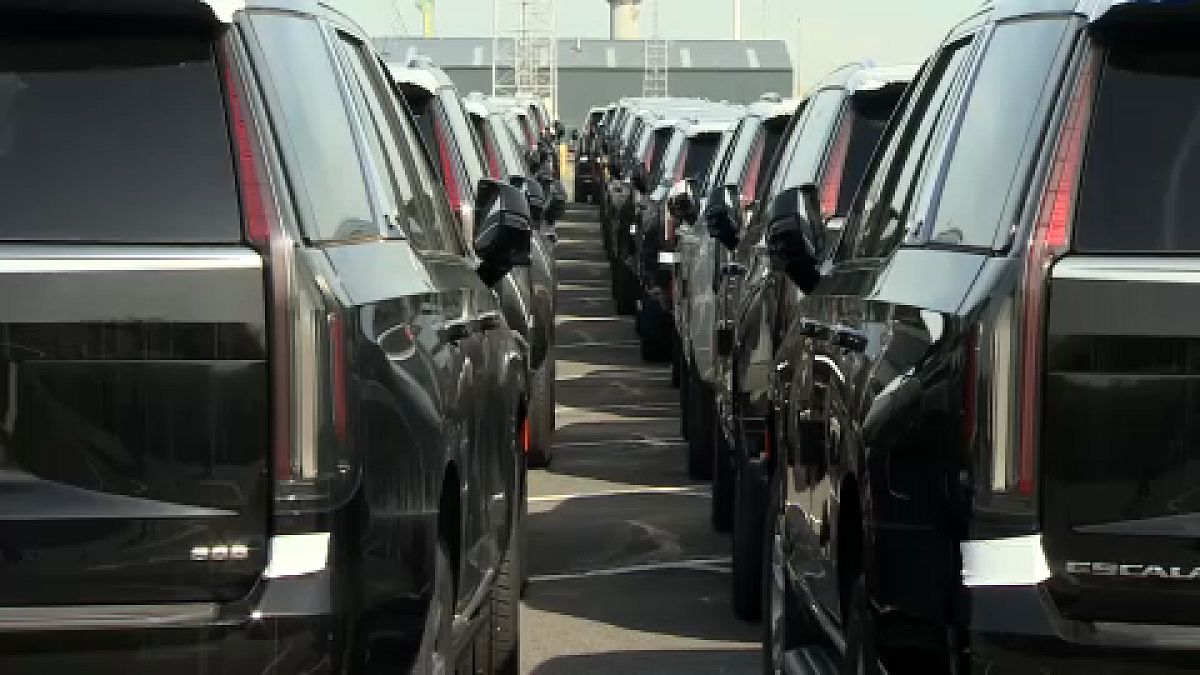EU sanctions prohibit the exports of cars worth over €50,000, a measure meant to hit the Russian elite.
European luxury cars meant to be sent to Russia are now stuck at the Zeebrugge port in Belgium due to EU sanctions over the war in Ukraine.
A luxury ban introduced in mid-March prohibits the sale of EU-made vehicles worth over €50,000 to Russia, influencing brands such as Mercedes, Ferrari and Porsche.
The measure has caused significant disruption across the bloc's freight hubs, including at the modern port of Zeebrugge, which handles over 2.2 million units of conventional cargo on an annual basis, making it one of the main car-handling ports in the world.
"These are cars coming from the far East and with destination to Russia. These cars are not exported anymore," Marc Adriansens, director of the port's International Car Operators (ICO) terminal, told Euronews.
"Customs said they have to be here and they are blocked. We don't know how long they will stay. My guess is that we will be looking for alternative markets."
Around 8,000 Russia-bound cars are currently blocked from being shipped, Adriansens noted.
But vehicles are not the only product under scrutiny. Current sanctions apply to a wide range of goods, such as aircraft components, quantum computing, semiconductors, sensitive machinery and chemicals.
The next target could be Russian fossil fuels, which are credited with financing the Kremlin's war apparatus. The radical step, which still lacks political consensus due to its hard-to-predict economic implications, could deal a new blow to container ports like Zeebrugge's.
"As long as oil and gas is not influenced, I think Zeebrugge is still going well. But oil and gas, and especially LNG [liquefied natural gas], is one of the big traffics coming from Russia to Zeebrugge," Adriansens said.
"If that would be stopped that would have quite a big impact in the port."
Watch the video above to know more about the impact of EU sanctions.
